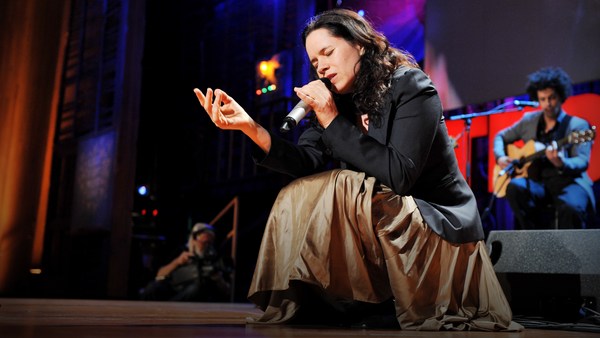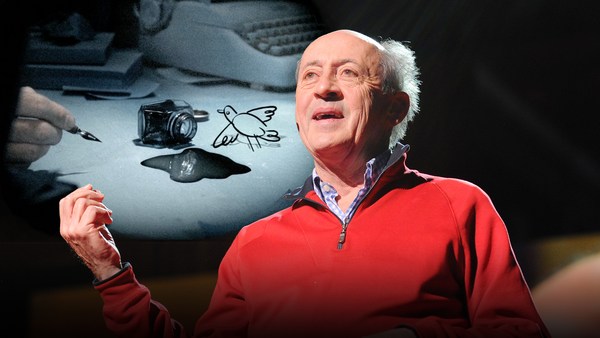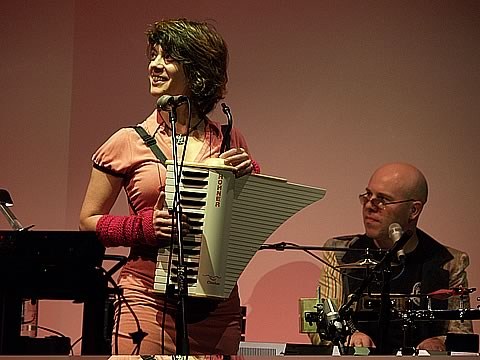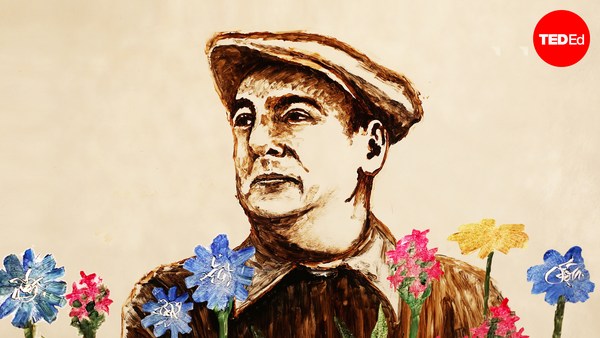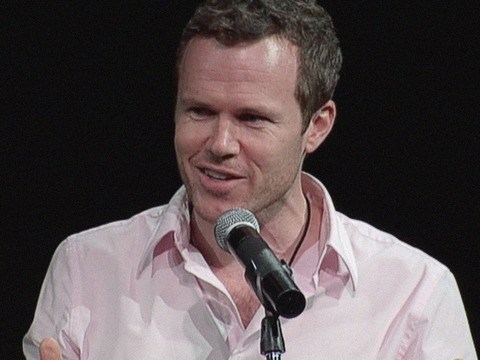1987: The Basque Parliament requests me to create a Research Center dedicated to Peace and Handling of Conflicts, in Gernika. I name it 'Gernika Gogoratuz', which in Basque means 'Remembering Gernika through the heart'. I run it for 14 years of successes and failures, during which I gradually start to realize that peace is weak, it's disastrously weak. How is this? Very easy. We all want peace, but we also want other things, more than peace. Those things make us turn against each another, which results in us arming ourselves, threatening with wars, and making them. We're making them. We're making them without realizing it. How many of us know how many wars we're making today? Seven? Ten? How many are we making officially? How many are we making unofficially? How much are we killing using drones every day, every minute? It's not known, but... What we know is the Earth's most destructive army, far more than all the others combined, has a Nobel Peace Prize Laureate as its supreme commander. Let's move on to an ominous day: March 11, 2004. The day when the trains were exploded by terrorist attacks. The day when dreams were broken, when lives were broken; a day of immense pain. In Madrid, I find the victims, and the group of people who has gathered together to help the victims. We share our concerns as well as the pursuit of how to make the desire for peace stronger. We transmit these concerns to Medialab Prado where they share our eagerness, and where we form a rather motley group, of more than 50 people that launches a project in 2011. The project consists in gathering and making public stories that contain strands of living peace. Nobody understands this! (Laughter) What does it mean? What we understand as strands of living peace are disinterested acts, generous actions assisting someone in great danger or in a situation of intolerable abuse, because of being seen as part of an enemy group or a foreign group. Also, rebellious actions that disrupt the discipline and the submission imposed by the group one belongs to. Actions that at first seem strange, supernatural, heroic, for exceptional people, foolish. But as we keep searching and finding them, we notice they're done by people who are regarded as ordinary people, who don't believe they've performed an act of heroism, but that they have simply done what they had to do. We realize the reason they aren't found is that they're not searched for. So, we're gathering those stories. We gather them because many of them are already published, checked, real stories. But most of these stories aren't gathered by us, they're gathered by young guys, high-school students, aged 11 to 17 years old, who, assisted by their teachers, and with the implication of their families, talk about the elders in their family or in their close circles. Thus, the grandfather of a student gives him a story. His father, at the beginning of war is in the Republican zone, but his family is in Franco's area, and he wants to cross the war front to reunite with his family, unarmed. When he attempts to do this, he encounters an armed militiaman on duty, with the order of blocking him. Frozen, they look at each other, they don't say a word, and the militiaman, instead of aiming at him with his rifle, he makes a reassuring gesture with his hand, telling him to pass. He passes, and his life changes. We'll go to Berlin now, to show how we acquire the capacity of seeing these strands surrounding us on a daily basis. Some months ago in Berlin, at 11 pm, in a metro station, a group of half a dozen boys, drunk, loud, with skinhead appearance, they enter a subway car, and they find an old lady sitting, with a black boy also sitting a few meters away from her. In a moment, they start provoking him with gestures and yelling. Something's going to happen. But what's going to happen is not what we expect, but that this good old lady stands up and walks little by little, and she sits next to the black boy. She starts to speak to him as if nothing happened. That confuses the group. They lower their tone and leave at the next station. Nothing has happened, but in a subtle way, that lady has rescued that boy from a beating. Every nation has its traumatic past. Thus, we gather stories from Guatemala, under Ríos Montt, from Argentina, with the military junta, from the Holocaust, from Palestine in many different times, from former Yugoslavia, and from Syria, we have current stories from Syria today, memories from the present. We gather these stories, we check them, and we correct any mistakes they may have sometimes. Then we pass them to an adequate format to be presented to the public. So, we travel with them from the intimacy of the families who kept those stories until they're made public. We're going to make them public. Here. Now. But also in mid-October in Wroclaw, Poland, in December-January in Donosti, and on our website. What do these stories have to do with the desire for peace? The desire for peace feeds on memory. But not any kind of memory, but with what experts call the 'collective memory'. It's a memory that moves people's wills. That memory has three characteristics: one, it is selective; two, it is reserved; three, it is bitter and dark. Selective - because, from the past in which our elders lived, it gathers fragments that tell good things about their own group, which is depicted as humane, innocent, heroic. In contrast to all the other groups which are portrayed as guilty, guilty of the lived trauma, betrayers, cowards, scoundrels, inhumane. They're memories that reject the stories from the others, and protect their own, which see the past through the lens of criminal justice. Criminal justice understands about crime, pain, regret, punishment, guilt... and little more than that. Everything else is a mitigating circumstance. There's a memory that educates for peace, another one that carries war forward, and sometimes it is not even known what memory is promoting what. But they have a huge strength. Take a look, for example, at what originates World War II. The collective memory that constructs Nazi Germany from the humiliating defeat it suffered after World War I. Without the memory of this defeat, World War II wouldn't be triggered. The memory that feeds on peace is weaker than the one that feeds war. Because the one that feeds war does it to the extreme. But the one that feeds peace does it halfway, because peace is more than we think. It's not the peace experts define, the negative peace, the peace of 'no to war and violence'. It's saying no to war and violence, pointing at the past and saying 'never again'. So is all Europe, full of monuments to the fallen, the Enfants de la Patrie, of cementeries, of former concentration camps, all of them shouting 'never again'. Out of that past. But peace is not only the peace of 'never again', but it is much more. There's what experts call positive peace, and we call living peace. It is the memory of our need and our acts of coexistence, that's the living peace. We're immersed in this peace of coexistence. Life is not given to us by us, but by other lives. Our life is held during its first months before we're born inside a woman's body. That's already coexistence. We coexist in our daily life, we know about this coexistence, we count on it. The day before yesterday, I traveled from Donosti by train, I took the subway with my suitcase. As I was going upstairs, two, three, four people who were going downstairs have come with a joyful smile to help me with my suitcase, just imagine if I had happened to fall down! (Laughter) That's so obvious that we forget about it. It's too simple to conceptualize it. What happens is when building collective memories, as I already said, this gets discarded. Those collective memories, so powerful, so capable of moving people's wills, present us a bitter and dark version of the past. If we insert strands of living peace in there, we insert a little light, which introduces inside that past a joyful, pleasant image. A past that not only condemns the past but a past that announces the future. Negative peace addresses our need for security and justice, and it is the basic nourishment of memory, the bitter and dark nourishment. The tiny doses of living peace strands are the aphrodisiac that is added to that nourishment, and the result is a marvelous mix. And a force... that the desire for peace needs in order to move from a world at war to a world that's cornering war. Many of you, who can see me better than I can see you, but still I see that you are starting to think; That has happened to my family, to my aunt, or to this strange brother-in-law who we don't know much about. (Laughter) Then you're starting to find hidden treasures in the past. The same thing happens to me. When I was four, a Republican taxi driver threw a strand of living peace at my father, some miles away from here, and saved his life. It's a memory, a jewel that ended up buried in the family memory, without comment. But 48 years later, my father dies. That day, we receive a phone call. She says, "I am the widow of the cabbie who saved your father's life, who died in Russia, as he had to emigrate." She dug up that hidden treasure, and she's given to me, and now I'm making it public. I'm breaking a very silent law of my family: these things are not to be told. I am spreading them, and they'll thank me. So now I can pass the ball back to you, because you also have your unknown land, the past, in which there are hidden treasures. But I pass the ball from one field to another, and if you have stories you wish to send, send them to us. Our address is very easy. Thank you. (Applause)
